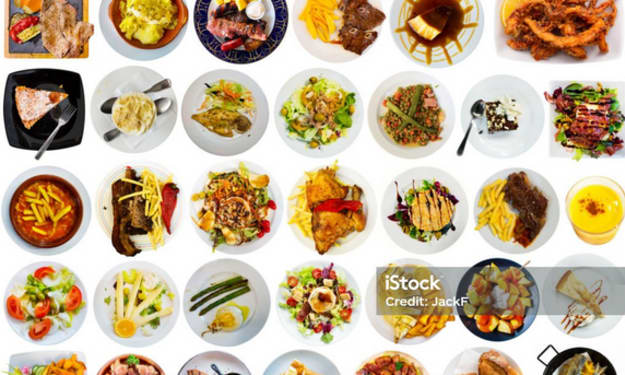Exploring culinary alchemy
The resurgence of fermentation in modern gastronomy

A captivating revival is underway, bringing an ancient practice to the forefront of modern gastronomy—the art of fermentation. This culinary alchemy, once a necessity for food preservation, has undergone a renaissance, captivating chefs and food enthusiasts alike with its transformative power. Join me as we embark on a fascinating journey into the world of fermentation, where humble ingredients are elevated to new heights, and flavors are enhanced through the magic of microorganisms.
Fermentation, a natural process driven by microorganisms like bacteria, yeast, and molds, has been a part of human culinary history for millennia. From the tangy notes of sauerkraut to the effervescence of kombucha, fermentation imparts distinctive flavors and textures that elevate dishes beyond the ordinary. What was once a fundamental method for food preservation has emerged as a culinary trend celebrated for its ability to enhance taste, promote gut health, and contribute to the overall complexity of flavors in a dish.
At the heart of the fermentation resurgence is an appreciation for the depth and nuance that these living microorganisms bring to the culinary table. Chefs, inspired by both tradition and innovation, are incorporating fermentation into their repertoires to unlock a spectrum of unique and complex flavors. From the umami richness of miso to the bold kick of kimchi, each fermented creation is a testament to the symbiotic relationship between time, microbes, and culinary craft.
One of the most heralded stars of the fermentation renaissance is sourdough bread. What was once a staple born out of necessity has become a symbol of artisanal craftsmanship. Sourdough, crafted through the fermentation of flour and water with wild yeast and lactobacilli, boasts a robust flavor profile and an airy, chewy texture. The revival of sourdough reflects a return to time-honored baking traditions and a rediscovery of the nuanced flavors that fermentation imparts.
Fermented beverages have also experienced a renaissance, with craft breweries and artisanal kombucha makers leading the charge. Kombucha, a fermented tea beverage, has become a symbol of the intersection between health-conscious choices and culinary innovation. Its effervescence, myriad of flavors, and purported health benefits have contributed to its popularity as a refreshing and sophisticated alternative to traditional beverages.
Beyond the palate, the resurgence of fermentation is intertwined with a broader cultural shift toward holistic well-being. The recognition of the gut as a "second brain" and the importance of a balanced microbiome have propelled fermented foods into the spotlight for their potential digestive and immune-boosting benefits. As a result, fermented foods are not only celebrated for their culinary appeal but also for their positive impact on overall health.
In the culinary world, chefs have become modern-day alchemists, experimenting with fermentation to create dishes that tantalize the taste buds and engage the senses. Pickling, curing, and culturing have become artistic expressions, and fermentation chambers have found a place in restaurant kitchens alongside traditional ovens and stovetops. The transformative power of fermentation is harnessed to push the boundaries of flavor profiles, introducing diners to tastes that are at once familiar and entirely novel.
The resurgence of fermentation is not confined to high-end restaurants; it has permeated home kitchens as well. Aided by a wealth of online resources, cookbooks, and DIY fermentation kits, home cooks are embracing the age-old practice, infusing their culinary creations with a touch of fermentation magic. From homemade yogurt and pickles to experimental kimchi recipes, fermentation has become an accessible and rewarding culinary endeavor.
While the fermentation resurgence is undoubtedly a celebration of tradition, it is also a nod to the future of sustainable and mindful eating. Fermented foods, with their natural preservation properties, contribute to reducing food waste. The process itself requires minimal energy input, aligning with a broader movement toward eco-friendly culinary practices. As consumers become more conscious of the environmental impact of their food choices, fermentation emerges as a champion of sustainability in modern gastronomy.
The resurgence of fermentation is a captivating journey into the heart of culinary alchemy. It bridges the gap between ancient traditions and contemporary gastronomy, transforming humble ingredients into culinary treasures. From the tang of pickles to the complexity of aged cheeses, the resurgence of fermentation is a celebration of the transformative power of microorganisms. As chefs and home cooks alike embrace this culinary revival, fermentation promises to continue enchanting palates, fostering a deeper connection to the past, and forging a path toward a more sustainable and flavorful culinary future. So, let's savor the magic of fermentation—a timeless artistry that continues to shape the ever-evolving landscape of modern gastronomy.
About the Creator
Enjoyed the story? Support the Creator.
Subscribe for free to receive all their stories in your feed. You could also pledge your support or give them a one-off tip, letting them know you appreciate their work.





Comments
There are no comments for this story
Be the first to respond and start the conversation.